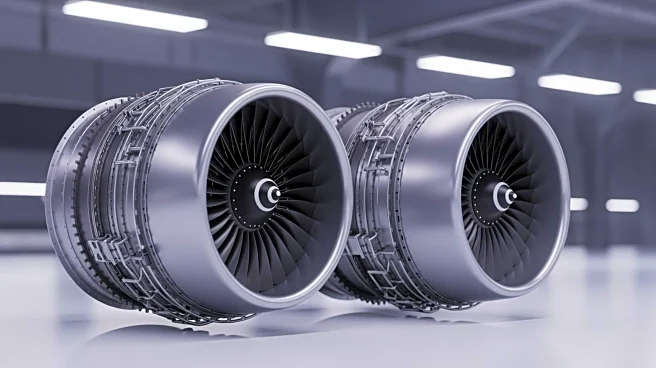What's Happening?
Executives from Airbus and Boeing have highlighted the need for additional suppliers to alleviate constraints affecting both new aircraft manufacturing and aftermarket services. William Ampofo, SVP of parts and distribution and supply chain, emphasized
the necessity of increasing capacity and introducing new entrants to balance the growing demand for new equipment and aftermarket services. This demand is driven by increased production rates at Boeing and Airbus, as well as the need for maintenance on older aircraft. The shortage of materials, including flight deck windows and various structural components, is a significant concern. Both companies are working to improve efficiency and expand the use of serviceable materials, but these efforts alone are insufficient to close the capacity gap.
Why It's Important?
The call for more suppliers is crucial for the aviation industry, which faces significant challenges due to material shortages and increased demand. The ability to meet production and maintenance needs is vital for the industry's growth and sustainability. The shortage of suppliers can lead to delays and increased costs, affecting airlines and passengers. By expanding the supplier base, Airbus and Boeing aim to ensure a steady supply of parts, which is essential for maintaining operational efficiency and meeting market demands. This move could also stimulate economic growth by creating opportunities for new businesses and investments in the sector.
What's Next?
Airbus and Boeing are expected to continue collaborating with existing suppliers to enhance efficiency and explore new sources to address capacity constraints. The industry may see the emergence of new companies specializing in regulated parts, although this is challenging due to certification requirements and significant investment needs. Manufacturers are likely to share more information with suppliers to improve forecasting and investment decisions. This transparency could help suppliers better understand market demands and make informed investments, ultimately strengthening the supply chain.
Beyond the Headlines
The push for more suppliers in the aviation industry could lead to long-term shifts in how supply chains are managed. The emphasis on transparency and collaboration may foster a more resilient and adaptable supply chain, capable of responding to future challenges. Additionally, the focus on expanding the supplier base could encourage innovation and technological advancements, as new entrants bring fresh perspectives and solutions to the industry.
















